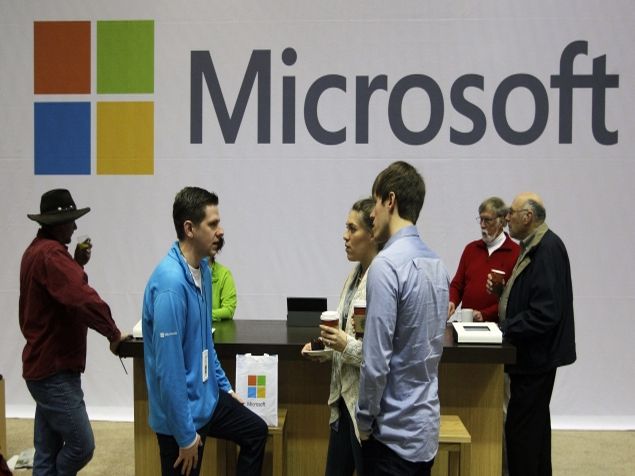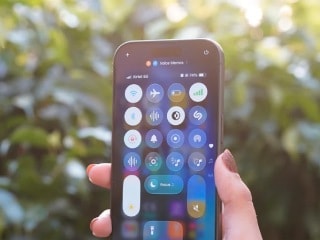- Home
- Internet
- Internet News
- Microsoft claims to have disrupted massive ZeroAccess botnet network
Microsoft claims to have disrupted massive ZeroAccess botnet network

The Redmond, Wash.-based software giant filed a lawsuit in Texas and won a judge's order directing Internet service providers to block all traffic to 18 Internet addresses that were used to direct fraudulent activity to the infected machines.
Law enforcement in many European countries served warrants at the same time, seizing servers expected to contain more evidence about the leaders of the ZeroAccess crime ring, which was devoted to "click fraud."
Such rings use networks of captive machines, known as botnets, in complicated schemes that force them to click on ads without the computer owners' knowledge. The schemes cheat advertisers on search engines including Microsoft's Bing by making them pay for interactions that have no chance of leading to a sale. Microsoft said the botnet had been costing advertisers on Bing, Google Inc and Yahoo Inc an estimated $2.7 million monthly.
The coordinated effort marks the eighth time Microsoft has moved against a botnet and a rare instance of it doing serious damage to one that is controlled with a peer-to-peer mechanism, where infected machines give each other instructions instead of relying on a central server that defenders can hunt down and disable.
But the ZeroAccess botnet still had a weakness: The code in the infected machines told them to reach out to one of the 18 numeric Internet addresses for details on which ads to click.
(Also see: India ranks third among ZeroAccess botnet infected countries: Symantec)
Microsoft recently opened a new Cyber crime Center in Redmond and is using new tools in its efforts. They are helped by a provision in trademark that allows pretrial seizure of suspected counterfeit goods, including websites that, as in the present case, are spreading tainted versions of the Internet Explorer browser.
The company is working with national computer security authorities in various countries and with Internet service providers to notify individual computer owners with infected machines, hoping to reach most of them before the fraudsters can spread new instructions.
Microsoft has been sharing evidence with the FBI and Europol, the continent's law enforcement coordinating service. National agencies took part in seizure actions in Germany, Switzerland, Latvia, Luxembourg, and the Netherlands.
(Also see: Microsoft, FBI take aim at global cyber crime ring)
For now, at least, the fraud by this network has stopped, said Microsoft Assistant General Counsel Richard Boscovich.
The operators of the botnet are believed to be in Russia, while the author of the malicious software distributed on it could be based elsewhere, Boscovich said.
© Thomson Reuters 2013
Get your daily dose of tech news, reviews, and insights, in under 80 characters on Gadgets 360 Turbo. Connect with fellow tech lovers on our Forum. Follow us on X, Facebook, WhatsApp, Threads and Google News for instant updates. Catch all the action on our YouTube channel.
Related Stories
- Samsung Galaxy Unpacked 2026
- iPhone 17 Pro Max
- ChatGPT
- iOS 26
- Laptop Under 50000
- Smartwatch Under 10000
- Apple Vision Pro
- Oneplus 12
- OnePlus Nord CE 3 Lite 5G
- iPhone 13
- Xiaomi 14 Pro
- Oppo Find N3
- Tecno Spark Go (2023)
- Realme V30
- Best Phones Under 25000
- Samsung Galaxy S24 Series
- Cryptocurrency
- iQoo 12
- Samsung Galaxy S24 Ultra
- Giottus
- Samsung Galaxy Z Flip 5
- Apple 'Scary Fast'
- Housefull 5
- GoPro Hero 12 Black Review
- Invincible Season 2
- JioGlass
- HD Ready TV
- Latest Mobile Phones
- Compare Phones
- Lava Bold N2
- Vivo V60 Lite 4G
- Tecno Pova Curve 2 5G
- Lava Yuva Star 3
- Honor X6d
- OPPO K14x 5G
- Samsung Galaxy F70e 5G
- iQOO 15 Ultra
- Asus Vivobook 16 (M1605NAQ)
- Asus Vivobook 15 (2026)
- Brave Ark 2-in-1
- Black Shark Gaming Tablet
- boAt Chrome Iris
- HMD Watch P1
- Haier H5E Series
- Acerpure Nitro Z Series 100-inch QLED TV
- Asus ROG Ally
- Nintendo Switch Lite
- Haier 1.6 Ton 5 Star Inverter Split AC (HSU19G-MZAID5BN-INV)
- Haier 1.6 Ton 5 Star Inverter Split AC (HSU19G-MZAIM5BN-INV)







![[Partner Content] OPPO Reno15 Series: AI Portrait Camera, Popout and First Compact Reno](https://www.gadgets360.com/static/mobile/images/spacer.png)









